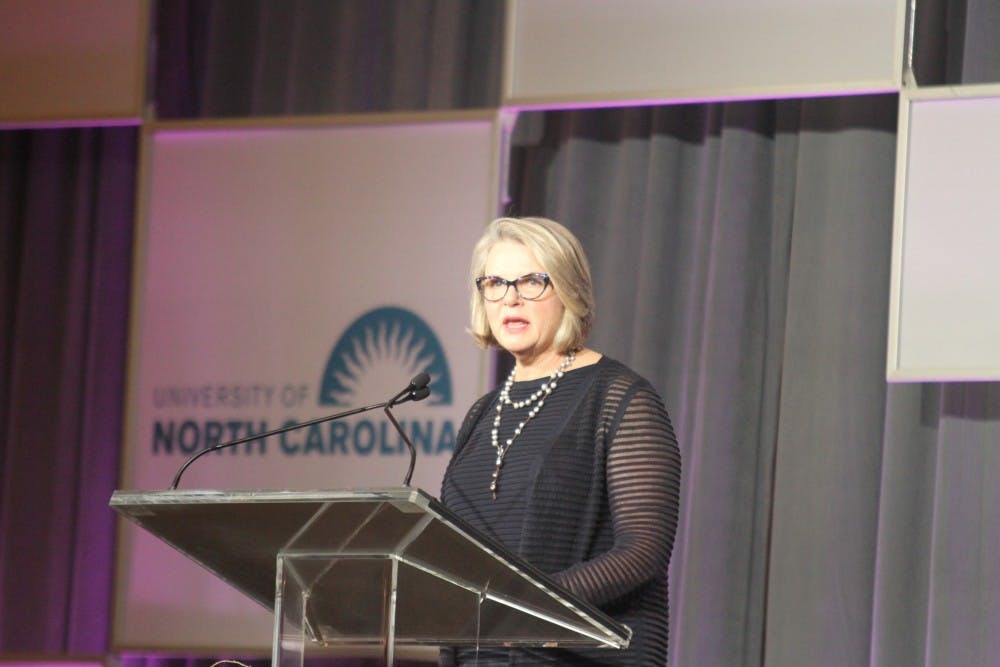UNC-system President Margaret Spellings and other higher education leaders concluded in a meeting Tuesday that universities have made limited progress in areas identified for reform 11 years ago.
Spellings, as former President George W. Bush's secretary of education, assembled the Spellings Commission in 2005 to recommend improvements on the nation's higher education system.
The report, titled "A Test of Leadership: Charting the Future of U.S. Higher Education," highlighted areas where American university systems needed improvements, such as innovation, accessibility, accountability, affordability and quality.
At Tuesday's meeting at UNC, Spellings said higher education has become less affordable instead of more.
"For most families in the United States, the single most important fact about higher education, sadly, is that it’s simply not affordable," Spellings said in the meeting's keynote address. "Even at public institutions – and even in states with a deep commitment to affordability, like this one – most families can’t pay out-of-pocket for a year of higher education."
She said higher education is presented as a tool for upward economic mobility, but many Americans are unable to take advantage of it. The perception that college is not accessible, she said, has fueled criticism about the value of education.
"We’ve always been an arena for debate and controversy, but we’re now a regular actor in political dramas we didn’t seek and don’t control," she said. "And that takes a toll, both in terms of public perception and in our day-to-day ability to get things done."
A recent survey by the Pew Research Center found that 58 percent of Republicans and Republican-leaning moderates said universities have a negative effect on the way things are going in the country, while 36 percent say their effect is positive — a change from two years ago.
Spellings said part of that could do with increased attention to political conflicts and free speech debates, which she said are an "endless stream of high-profile distractions."




